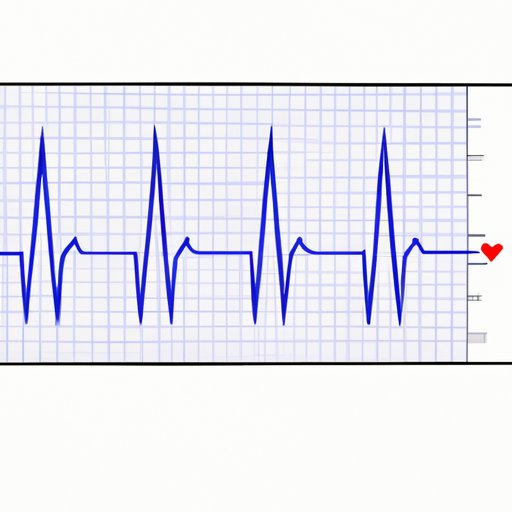Introduction
Your heart rate is an important indicator of your overall health. Measured in beats per minute (BPM), it is the number of times your heart contracts and relaxes within a single minute. Knowing your heart rate while you are sleeping can provide valuable insight into your body’s overall state of wellness.
What Should My Heart Rate Be at Night?
The average range for adults during sleep is generally between 60-100 BPM. However, this will vary depending on age, activity level, and other factors. For example, children typically have faster heart rates while sleeping than adults do. Additionally, athletes may have lower resting heart rates due to their increased cardiovascular fitness.
There are several factors that can influence your heart rate while sleeping. These include stress, anxiety, medications, alcohol consumption, and even the time of day. It is important to consider these factors when determining what your ideal heart rate should be.

Heart Rate Variations During Sleep and Their Significance
Normal variations in heart rate during sleep are expected and usually not indicative of any underlying medical issue. In fact, these fluctuations are part of your body’s natural circadian rhythm. As you drift off to sleep, your heart rate typically slows down as your body enters a relaxed state. During REM sleep, your heart rate may increase slightly before returning back to its baseline.
Abnormal variations in heart rate during sleep can be a sign of an underlying health concern. If your heart rate is consistently too high or too low, it could indicate a problem with your heart, lungs, or other organs. If you experience any unusual changes in your heart rate while sleeping, it is important to consult your doctor.

Understanding Your Ideal Heart Rate for Optimal Sleep
In order to get the most restful sleep possible, it is important to understand your ideal heart rate. This can be determined by taking into account several factors, including age, sex, physical activity level, and any medications you may be taking. Once these factors are taken into consideration, you can calculate your personalized ideal heart rate.

The Impact of Heart Rate on Quality of Sleep
Having too high of a heart rate while sleeping can lead to poor sleep quality. This can result in feeling tired during the day, difficulty concentrating, and irritability. On the other hand, having too low of a heart rate can also be detrimental. It can cause feelings of fatigue, dizziness, and difficulty breathing.
How to Monitor Your Heart Rate During Sleep for Maximum Rest
Fortunately, there are a variety of options for monitoring your heart rate while sleeping. Wearable devices such as smartwatches, fitness trackers, and heart rate monitors are all effective ways to track your heart rate at night. You can also use apps on your smartphone or tablet to monitor your heart rate while you sleep.
To accurately track your heart rate while sleeping, it is important to follow certain steps. First, make sure to wear your device or place your smartphone or tablet near your bed. Before you go to sleep, take a few moments to relax and clear your mind. This will help ensure that your readings are accurate. Lastly, make sure to check your heart rate each morning to identify any variations or irregularities.
Conclusion
Knowing your heart rate while you are sleeping can provide valuable insight into your overall health. By understanding your ideal heart rate and tracking your readings, you can ensure that you get the most restful sleep possible. With the right tools and techniques, you can easily monitor your heart rate while you sleep and maximize your nightly rest.


